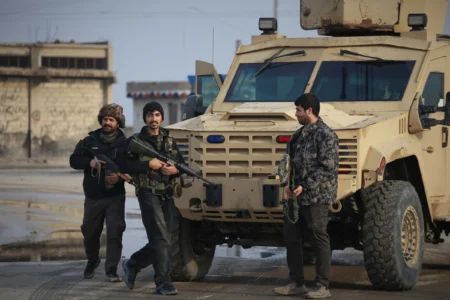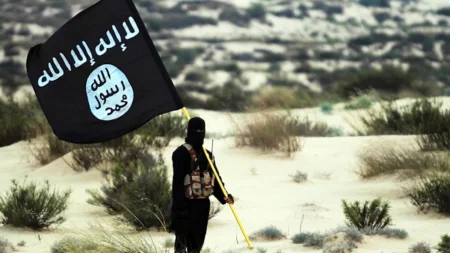At 1 a.m. on Thursday, Dartsia Liuba rushed to her basement with her husband and two young children. They live in the Podil district of Kyiv. The air-raid sirens warned of an incoming Russian drone attack. In the dark, Liuba carried her baby, Halyna, while her older daughter, Orysia, followed half-asleep down three flights of stairs.
Soon, the sky was filled with terrifying sounds. Shahed drones buzzed overhead, followed by explosions and bursts of machine gun fire. Ukrainian air defence tried to stop the swarm, but the attacks were relentless. Across the capital, families hid in metro stations, bathtubs, and between walls. Liuba’s shelter had been prepared since last year, with beds, chairs, and basic supplies.
While her husband and children managed some sleep, Liuba remained awake. She texted a friend, saying she was scared and could barely stay calm. At 5 a.m., she took the kids upstairs but had to return an hour later due to more missile alerts.
In many parts of Kyiv, residents woke to smashed windows, fires, and broken buildings. One shop was boarded up, and a drone had hit an apartment block, setting its roof on fire. A destroyed Geran-2 drone was found nearby. On Sichovykh Striltsiv Street, firefighters battled flames while neighbours gathered outside, shaken but safe.
The situation has worsened since Russia’s full invasion in 2022. Last month, 5,209 drones and missiles were launched, a massive rise from 580 a year earlier. Wednesday’s attack alone involved 728 drones and 13 high-speed missiles. Many were aimed at Lutsk, near Poland. Thursday’s attack on Kyiv killed two and injured 28. According to the UN, civilian deaths in Ukraine are at their highest in three years.
Liuba compared the constant bombings to the London Blitz, calling it worse. On Thursday morning, she tried to continue with daily tasks while feeling dazed and overwhelmed. She drank strong coffee and took a painkiller, her mind fogged by stress and lack of sleep.
Liuba had once fled to London during the early months of the war. Her daughter went to school there. But she missed her family and returned to Kyiv. Last November, while in labour, she sheltered in a maternity ward during another attack. Her husband is a soldier. She takes mild antidepressants to cope.
Other residents expressed frustration and fear. One woman said a police officer died during the attack. She had spent the night in a crowded metro station. “You can’t move,” she said. “Every space is full.” She called on Western nations to do more, especially to help improve Ukraine’s air defences.
Some residents tried to return to normal. Nail salon workers waited outside their damaged shop. A 24-year-old worker, Alina, called the situation “messed up.” She coped by watching cat videos online, which helped calm her nerves.
Kyiv’s defences are stretched thin. In the past, the U.S. supplied interceptor missiles for Ukraine’s Patriot systems. But with the change in U.S. leadership, deliveries have slowed. Recent reports say the U.S. will send 10 missiles—helpful, but not nearly enough to stop the rising threat.
Nearby, in Lukyanivska district, another drone struck an old factory building. Across the road, workers were fixing broken windows of a local store. This area houses many people who fled fighting in other regions. Rent is cheaper here because of repeated damage.
The psychological toll is growing. A visitor from Germany noted a 16-year-old girl she knew had stopped laughing and refused to leave her father’s side. A friend drinks nightly to manage the stress, and her brother has developed stomach issues.
Despite the danger, the nightly bombings have brought neighbours together. In the shelter, Liuba shared stories and tea tips with fellow residents. When the baby slept, she worked on her laptop—she’s a graphic designer.
Later that day, Orysia showed off a scrapbook from her school in London. It had photos from visits to museums and parks. The family plans to travel to the Netherlands for a short break. Liuba said her daughter needs to feel safe, even briefly. “We’ll sleep near a window, in peace,” she said.







